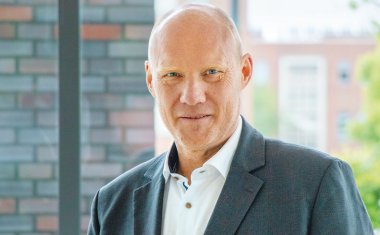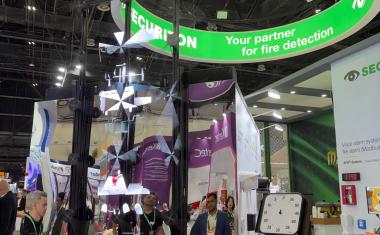EuroFire 2011 Conference in Paris
After the success of Eurofire 2009 in Brugge, the 5th Eurofire conference will be convened in Paris, France, to highlight the evolution in fire safety during these last 2 years and...
After the success of Eurofire 2009 in Brugge, the 5th Eurofire conference will be convened in Paris, France, to highlight the evolution in fire safety during these last 2 years and its positive impact on the construction industry. As part of the 200 year celebrations of the Parisian Fire Brigade, the BSPP, will host Eurofire at the prestigious L'École Militaire, Paris.
Fire Safety has a significantly different role in society now from that which it has traditionally held and the aims of Fire Prevention and mechanisms of achieving them are constantly evolving. A hundred years ago whole cities burned down and thousands of people died in residential and industrial fires whilst the economic consequences of these losses were directly born by the victims who had no way to insure against these risks.
Now insurance has changed this situation and, in business premises where both property values and the legal responsibility to employees' safety have motivated scrutiny, many sources of fire risk have been eliminated from our society. Some fire risks will disappear with acceptance of new technologies e.g., those associated with the use of liquid or solid fossil fuels for household heating which are being replaced by safer fuel sources: whilst others like those associated with cigarette smoking are harder to dismiss from our society. New fire risks will no doubt appear with the on-going technical, social and political change.
The industrialised world has put considerable effort into reducing fire risk and now enjoys very high levels of fire safety. As a consequence the number of fire fatalities and direct financial losses from unwanted fires has significantly reduced over a 100 year period. It is now even possible to pass fire risks from prevention to insurance companies and governments take responsibility for life safety via their regulatory processes.
That was the good news from the last century, but ....
- Why do we still have fire fatalities and economical losses in these days of strongly regulated fire protection and highly educated fire protection engineers?
- Don't we do enough to save lives? Must we have to accept a finite number of fire fatalities, to maintain a balanced social life?
- Do we have enough economic resources to save all lives? And if not, where is the limit? How much more should we spend to save one additional life?
- Do we know the cost-efficiency of our fire prevention measures? And if not, how can we be sure that we are doing enough to save lives?
- Do we know, if the price we pay for fire safety is too high? And if not, why don't we compare the economic input for fire safety measures and the remaining financial losses from hazardous fires with other technical risk groups? For example: road safety or nuclear power generation.
For each of these questions we, as governments, authorities with jurisdictional responsibility, entrepreneurs, construction engineers, designers, engineers, architects etc., have to find an answer to execute our daily business. We have to decide if our fire safety measures are sufficient and efficient enough to protect lives and/or property.
Some countries have systems in place to do this, with tools to take the informed decisions founded on risk based regulation and probabilistic outcomes, or risk based codes and standards implemented by professional fire engineers employed in aspects of the decision making process e.g., regulators, fire brigades and designers. In other countries codes, standards and the regulation is prescriptive. In most countries we have a mixture of all the above mentioned.
Apart from cultural and social differences between countries, system differences make it very hard to compare and identify the most efficient way to invest our economic resources in fire safety. The way to answer these questions is to learn from each other. This is the aim of EUROFIRE 2011:
To listen and to learn about how things can be done even when there are differing aims and goals, different financial constraints and technical backgrounds. Eurofire will present, discuss and debate the fire safety technologies used to improve fire safety in buildings. The 2011 conference will particularly focus on the Trends in Fire Safety Engineering and the Practical Applications which have been rapidly developing. For example the special needs of very-Tall Buildings and the challenges these present to the fire engineering world.














